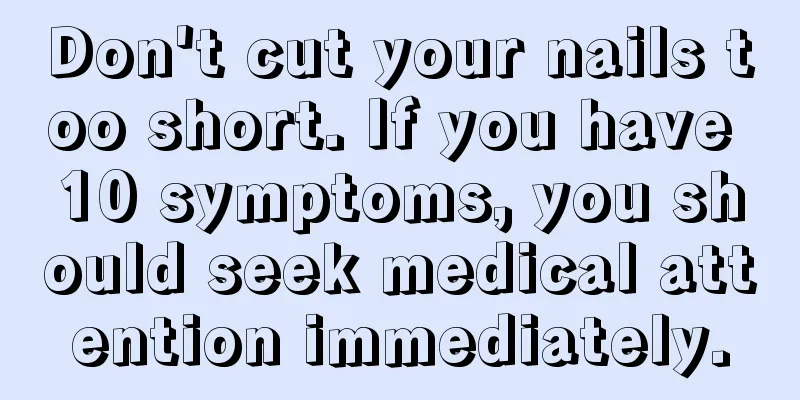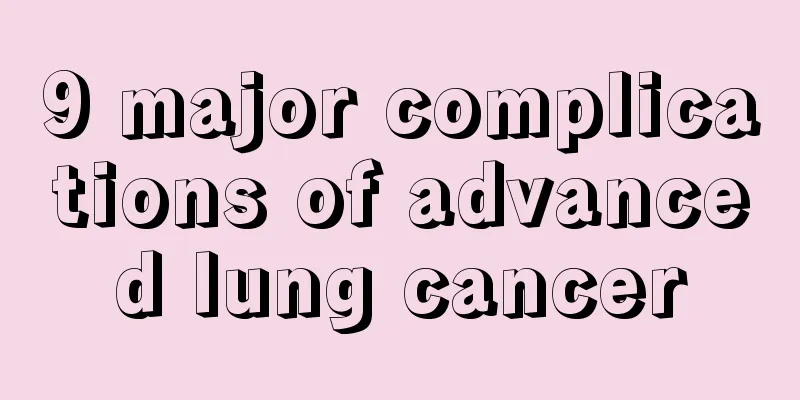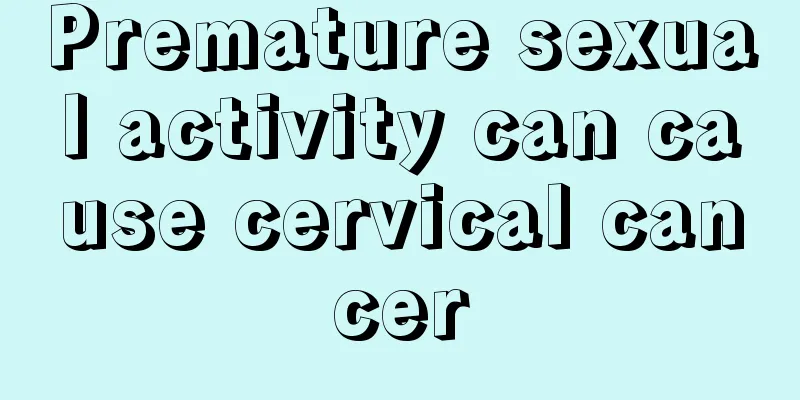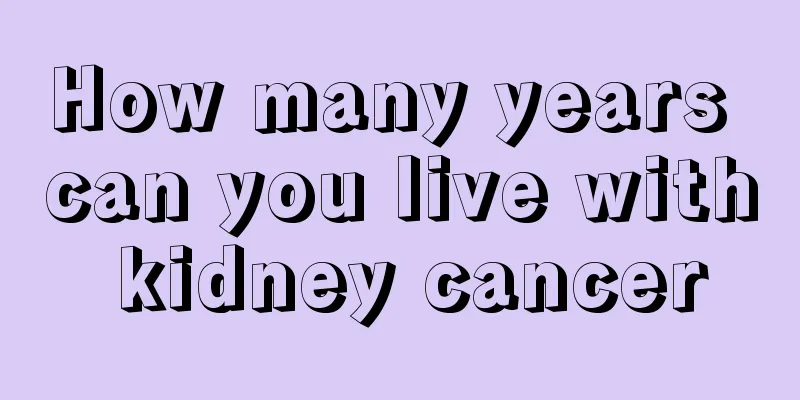Don't cut your nails too short. If you have 10 symptoms, you should seek medical attention immediately.

|
Long nails are prone to harboring dirt and breeding bacteria. Therefore, many people are used to cutting their nails very short and cool. Little do they know that this will not only fail to protect their fingers, but will also do more harm than good. If the nails are cut too short, they can easily separate from the nail bed when you pick up things, work, or do housework. The soft tissue at the front of the finger is not covered by the nail, and the tip of the nail will grow inward. In severe cases, this can induce paronychia and the nail is susceptible to fungal invasion. Trim your nails twice a week Therefore, be careful when cutting your nails. The correct way should be to trim the middle first and then the ends. This way it is easier to control the trimming length and avoid cutting the corners too deep. Otherwise, the newly grown nails can easily become embedded in the soft tissue, becoming "ingrown nails", damaging the skin around the nails, causing purulent infection of the subcutaneous tissue, and triggering other inflammations. When cutting your nails, cut them flatly, and do not force the nail clippers into the gaps between the nails to cut; if the nails have sharp corners, be sure to round them off. In addition, the corns near the nails should be dealt with in a timely manner. Do not pull them out directly with your hands to avoid damaging the surrounding skin tissue. Use a nail clipper to carefully cut off the corns at the root. So, how often should you trim your nails? Human fingernails grow at an average rate of about 0.7 mm per week, and it is recommended to trim them twice a week; toenails grow relatively slowly and can be trimmed 1 to 2 times a month. The appropriate length for cutting nails is: the top of the nail is flush with the fingertip or slightly longer, leaving a small white edge. While cutting your nails, you can also do some simple hand and finger massage to help promote blood circulation in your fingers and supply your nails with adequate nutrients. You can also choose some nail-protecting nourishing oil to keep your nails shiny and tough. In addition, you should wash your hands frequently. Simply cutting your nails short cannot fundamentally guarantee personal hygiene. Paronychia should be treated promptly If the edge of the nail becomes red, hot, or painful, you may have paronychia, which can be relieved by hot compresses, applying erythromycin ointment, etc. When you feel pain, you can apply 75% alcohol or tincture of iodine, take antibiotics, or use some Chinese medicine for clearing away heat and detoxifying. The inflammation will improve and subside on its own. If the treatment is not timely, pus will come out of the lesion and white spots will appear. When paronychia becomes pus, in addition to using antibiotics, surgical treatment is also required. For unilateral subcutaneous abscess, drainage can be performed by incision next to the nail groove; bilateral subcutaneous abscess requires bilateral drainage. For abscesses at the root of the nail, simply lifting the skin is often not enough to drain them adequately, and part or even the entire nail needs to be separated and removed. At the same time, she clearly reminded patients not to use mercurochrome or gentian violet, two disinfectants that were commonly used in the past but are now banned in clinical practice due to their high toxicity and risk of causing cancer. Calcium supplementation is necessary for brittle nails In addition, the main components of nails are protein and calcium. If you find that your nails are brittle and easy to peel off, it is mostly due to iron and calcium deficiency leading to poor health or lack of protein in food. It may also be caused by impaired kidney function and poor blood circulation. Wang Xiaoxia recommends that such people eat more lean meat, beans, fish, grains and other foods high in protein and calcium to increase nutrition. Similarly, excessive dryness can make nails brittle and fragile. Nails should be massaged with nail lotion once every morning and evening. At the same time, nails should be kept short and can be grown long only after the situation improves. Ten phenomena of nails White nails - liver disease such as hepatitis; Yellow, thickened, and slow-growing nails – lung disease such as emphysema; Yellow nails with a reddish base - diabetes; Nails half white and half pink - kidney disease; Redness of the nail bed - heart disease; Gray or white nail beds - anemia; Nail surface depressions or wrinkles - psoriasis or arthritis; Finger clubbing, that is, the fingertips become hypertrophic, thickened, and club-shaped - lung disease; Irregular red lines appear at the base of the nail folds - lupus erythematosus or connective tissue disease; Dark lines appear under the nails - melanoma. |
<<: What should I do if I go to bed on the wrong bed at night?
>>: Only the thumb has a half-moon mark, okay?
Recommend
Is it good to stick ginger on the navel to treat constipation?
Some of you may have heard that applying ginger s...
How to nourish the lungs in autumn? 17 secret recipes to protect lung health
With the arrival of the Beginning of Autumn, we b...
How to detect early bone cancer
How can early bone cancer be detected? How is bon...
Why is follow-up examination important for kidney cancer patients?
Follow-up examinations for kidney cancer patients...
Pain in calf blood vessels
Calf vascular pain is likely a symptom of disease...
What is the best way to kill aphids on plant flowers?
Keeping some plants at home can green the environ...
There is a hard lump on my knee
The knee is a bone that protrudes from the human ...
The symptoms of breast cancer metastasis include the following situations
Breast cancer metastasis is a common condition in...
Can bile duct cancer be cured?
Cholangiocarcinoma is not easy to detect because ...
Effective ways to prevent cardia cancer in daily life
Cardiac cancer is a malignant tumor caused by man...
What are the hazards of electric heaters
The weather is cold in winter, so we have electri...
Experts explain the most important dietary principles for ovarian cancer
What to eat and how to eat after suffering from o...
If you want to avoid liver cancer, you must understand its causes
Liver cancer is one of our common malignant tumor...
How to clean ears with hydrogen peroxide solution
Hydrogen peroxide is what we commonly call hydrog...
What is the cause of pituitary tumor attack
What is the cause of pituitary tumor? Pituitary t...









